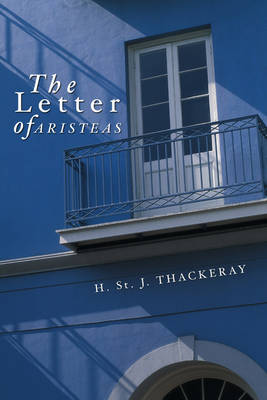
- Afhalen na 1 uur in een winkel met voorraad
- Gratis thuislevering in België vanaf € 30
- Ruim aanbod met 7 miljoen producten
- Afhalen na 1 uur in een winkel met voorraad
- Gratis thuislevering in België vanaf € 30
- Ruim aanbod met 7 miljoen producten
Zoeken
Omschrijving
The Letter of Aristeas purports to be an account of how the translation of the Pentateuch from Hebrew into Greek for Ptolemy II Philadelphius was done. The letter states that, at the suggestion of Demetrius Phalereus, Ptolemy sent Aristeas to the high priest Eleazar to obtain experienced men to render the Hebrew Law into Greek for the library at Alexandria. Eleazar chose seventy two men, six from each of the tribes, who went to Egypt, were received with great honor, completed their task, and were sent back with presents for themselves and the high priest. This narrative was for centuries the account accepted by Jews and Christians of the origin of the Septuagint. The story is also told with few differences by Aristobulus, Justin Martyr, Tertullian, Jerome, and others. Scholars now generally view the work as a fiction. Nevertheless, the story is the basis for the name by which the Greek Bible has become known, the Septuagint or LXX. It is also regarded as an important source document for the period.
Specificaties
Betrokkenen
- Auteur(s):
- Uitgeverij:
Inhoud
- Aantal bladzijden:
- 122
- Taal:
- Engels
Eigenschappen
- Productcode (EAN):
- 9781592441723
- Verschijningsdatum:
- 6/03/2003
- Uitvoering:
- Paperback
- Formaat:
- Trade paperback (VS)
- Afmetingen:
- 128 mm x 170 mm
- Gewicht:
- 108 g

Alleen bij Standaard Boekhandel
+ 61 punten op je klantenkaart van Standaard Boekhandel
Beoordelingen
We publiceren alleen reviews die voldoen aan de voorwaarden voor reviews. Bekijk onze voorwaarden voor reviews.







